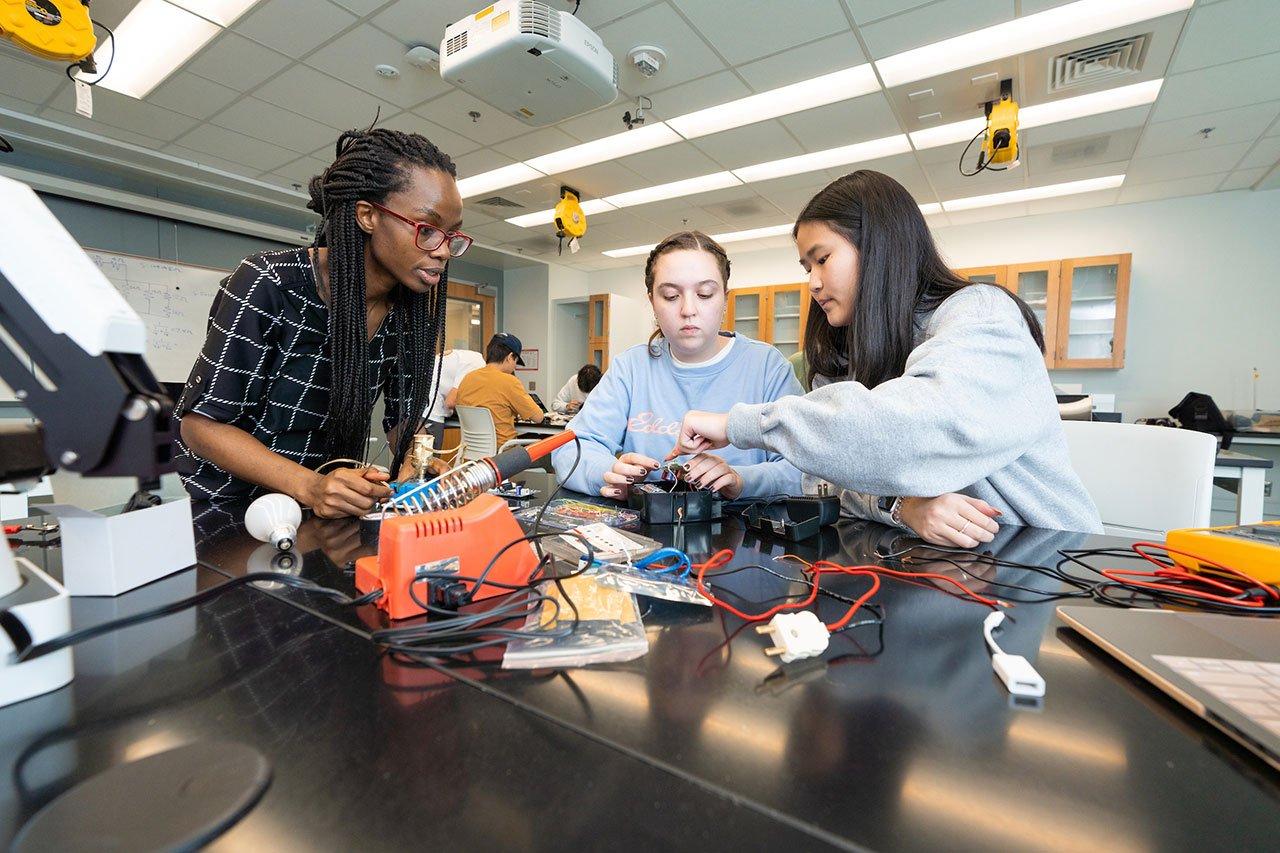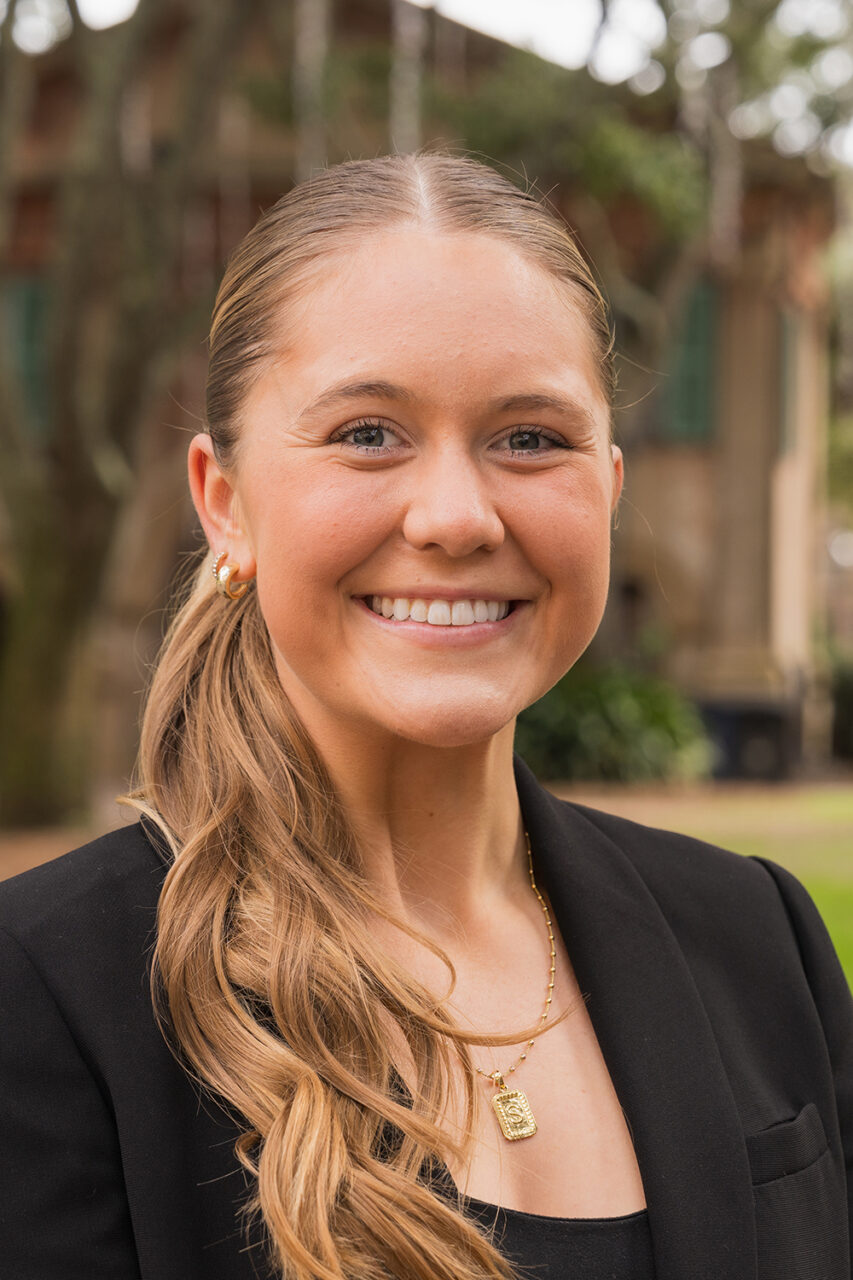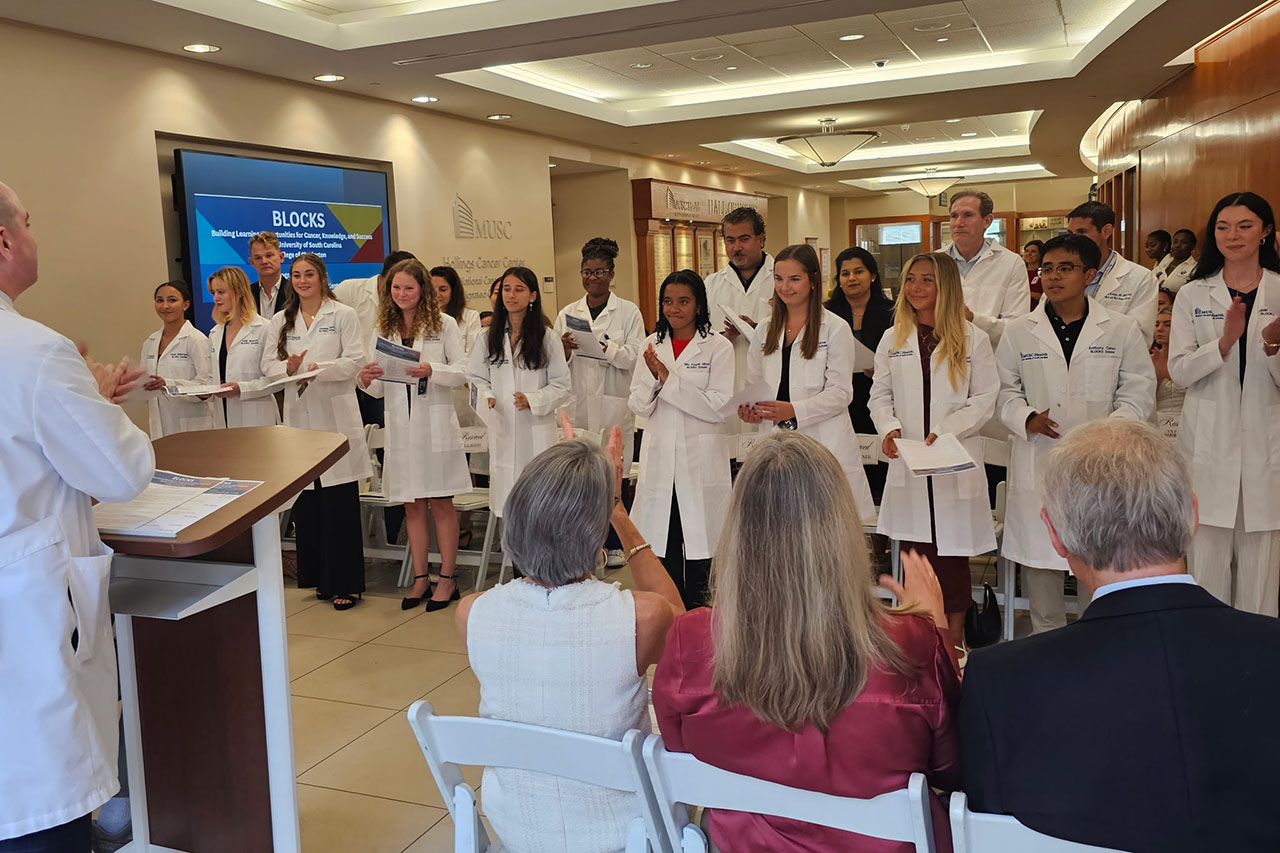Systems Engineering Program Earns ABET Accreditation
ABET is the gold standard of accreditation in engineering education.


The College of Charleston School of Engineering, Computing, and Mathematics is starting the academic year off strong, announcing that its bachelor of science in systems engineering is now accredited by the Engineering Accreditation Commission of ABET, under the commission’s General Criteria and Program Criteria for Systems and Similarly Named Engineering Programs.
The Systems Engineering Program is the first engineering program at the College to achieve this badge of academic excellence. The program began in 2020 and was housed in the Department of Physics and Astronomy until the new Department of Engineering was approved by the Board of Trustees in April of 2024.
ABET is the gold standard of accreditation in engineering education, and accreditation is a rigorous process.
“The process involves the creation of continuous improvement systems that evaluate student performance across a range of criteria,” says School of Engineering, Computing, and Mathematics Dean Steven Schreiner. “The system must be well documented so ABET program evaluators can verify that all criteria are met.
“Moreover, ABET requires that the program graduate students before applying for accreditation,” Schreiner adds. “Overall, preparation for the accreditation evaluation was a four-year process.”
Graduating with a B.S. in Systems Engineering
The first students to earn degrees in systems engineering graduated in 2023. Since then, the program has continued to see strong employer demand, including internships for students and full-time placement of graduates. Recent employers include Boeing, Volvo, NRG Energy, REI Systems, BAE Systems, Scientific Research Corporation, NIWC Atlantic, Textron Systems, IFA Group and more.
Two standout graduates are cheering the accreditation award from their places of employment.


“I was so excited because I know how much work it was. We watched the process my whole four years,” says Sydney Pearson ’25, who started as an intern at Cummins Turbo Technologies in Ladson, South Carolina, transitioning into a full-time role as an industrial engineer doing production optimization after graduation.
Pearson served on the dean’s advisory board throughout the accreditation process and is thrilled to see the effort pay off.
“Accreditation helps with credibility,” she says. “We feel really validated. This validates all the hard work that everyone has put into the engineering program.”
Emily Alfortish ‘25 – a software developer in the Charleston office of Booz Allen Hamilton, focusing on delivering high-quality solutions to improve software to improve efficiency of delivering benefits to veterans – agrees.
“We knew going through the process that this was a great program. This is like the cherry on top that we needed,” she says. “The beauty of this degree is that it taps into so many different buckets, allowing you to tap into a variety of different fields where your strengths lie.”
Expanding CofC Engineering Programs
Schreiner says the innovative program continues to catch the attention of students and faculty alike.
“Engineering programs are a great addition to the campus’ degree portfolio,” he says. “There is no end in sight for high-technology’s expanding reach into every aspect of our lives and into nearly all fields of study. Students graduating today will oversee the design and creation of incredible technologies over the next 50 years that will benefit all of humanity, and these will be highly interdisciplinary endeavors.”
Schreiner looks forward to expanding strategic collaborations on campus and with industry partners as the College’s engineering department grows.
“Given Charleston’s comprehensive offerings, such collaborations can provide deep learning opportunities through unique interactions,” he points out. “For example, we’re currently working on an innovative design and engineering minor with the studio art department, which will give majors from both fields new perspectives of how creativity and aesthetics interact.”
The accreditation aligns directly with the College’s mission of preparing students to excel in a rapidly changing global economy, while strengthening the institution’s role as a driver of regional innovation and workforce development.
Electrical engineering will be the next engineering program to apply for accreditation, in the fall of 2026.



